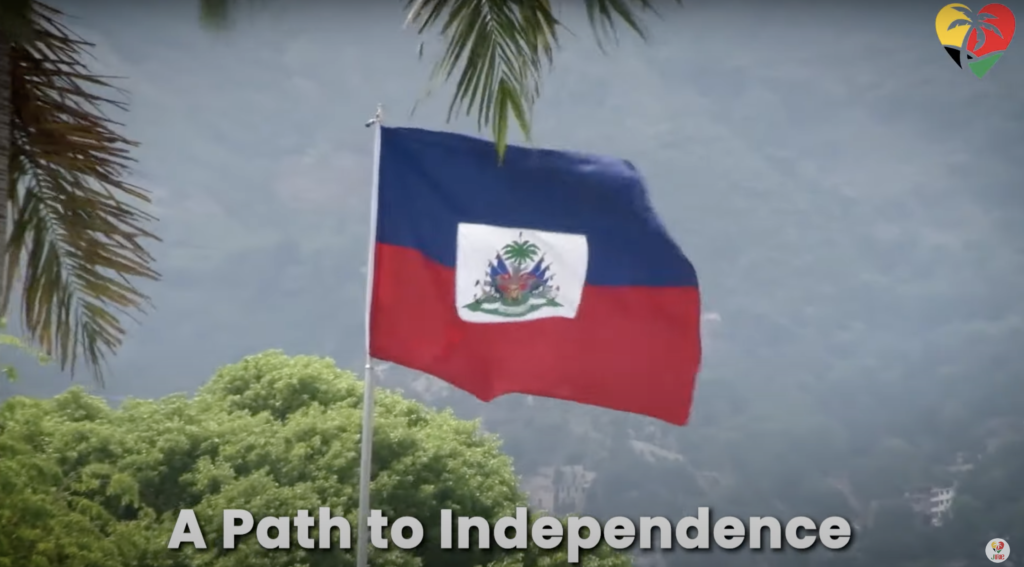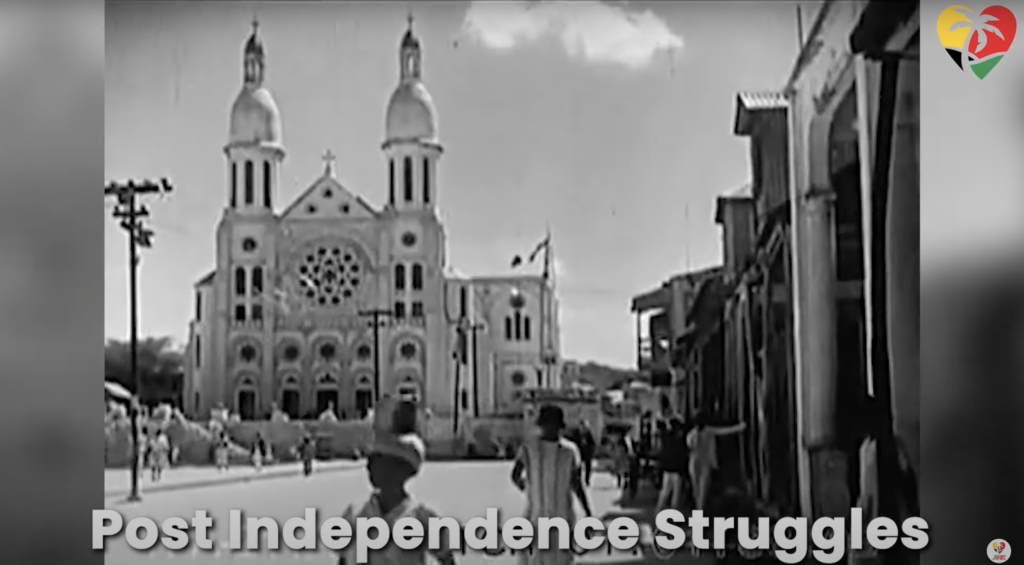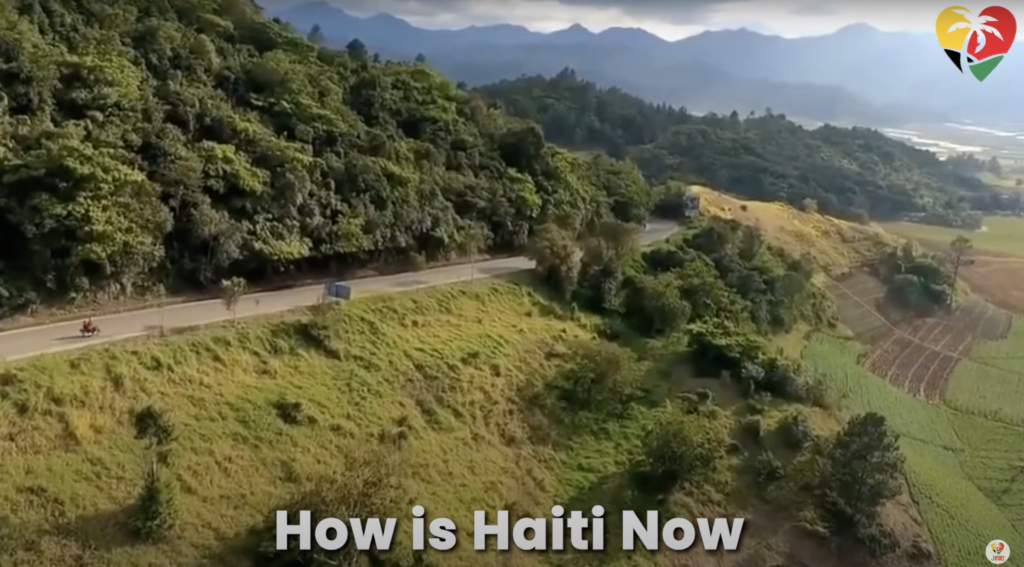Haiti’s path to liberty is marred by many struggles, yet their triumph over adversity is a beacon of hope and inspiration. Welcome to a journey through time and resilience, as we celebrate Haiti’s 220th year of Independence. A story not just of a nation, but of an unbreakable spirit. Imagine a land that transformed from one of the wealthiest colonies to a symbol of freedom, becoming the world’s first black republic. This is not just history; it’s a testament to the indomitable will of the Haitian people. Join us in exploring the rich tapestry of Haiti’s heritage, its vibrant culture, and the relentless pursuit of a brighter future. From the echoes of the Haitian Revolution to the present-day challenges, witness how this resilient nation continues to shape the world.
Stay with us, as we unfold the captivating story of Haiti’s 220 years of independence, a saga of courage, resilience, and hope that resonates across generations. Don’t forget to subscribe and ring the bell, as we dive into this incredible celebration of freedom and legacy. Let’s embark on this remarkable journey together! As we ring in the new year with celebrations and optimism for 2024, we must also highlight another reason to celebrate, as Haiti marks this independence milestone. Amidst its challenges, this resilient nation of Haiti still stands tall, adorned with a history that echoes the fervor of liberation and the undying spirit of its people.
We can all agree that the history of Haiti has not always been glorious, and this occasion provides an opportunity for us to reflect on the nation’s tumultuous history, as well as its unwavering spirit of resilience, and the rich cultural heritage that defines its identity. Haiti’s journey towards independence was a remarkable story of courage and liberty, and the time since continues to show its resilience.
A Path to Independence

The path to Haiti’s independence is a riveting narrative steeped in the struggle against oppression, the triumph of the human spirit, and the birth of a nation marked by resilience and tenacity. While Haiti is now considered to be one of the poorest countries in the Caribbean, it surprises many to know that it was once one of the wealthiest colonies in the Americas and the richest in the Caribbean.
The story unfolds against the backdrop of a turbulent era, when the shackles of slavery and colonial exploitation gripped the island of Hispaniola, then known as Saint-Domingue. The start of Haiti’s journey to independence stemmed from the inherent brutality of French colonial rule, as well as a higher proportion of enslaved people to colonizers. This led to the Haitian Revolution in 1791 and the mantle of leadership was then taken up by Jean-Jacques Dessalines, a key figure in the Haitian Revolution. Under his command, the enslaved population dealt a decisive blow to Napoleon Bonaparte’s forces in the Battle of Vertières in 1803. The French, recognizing the futility of their efforts to maintain control, abandoned their ambitions in Haiti.
On January 1, 1804, Jean-Jacques Dessalines officially declared the independent state of Haiti, making it the first black republic in the world and the first country to gain independence from a European colony. This bold declaration not only severed the chains of slavery but also challenged the prevailing global order, inspiring oppressed people around the world to envision and strive for their freedom.
Post Independence Struggles

Unfortunately, this triumph of independence did not automatically make Haiti better, and in fact, cost Haiti centuries of development. Beginning with its independence from France, as part of that agreement, the newly formed republic had to pay the French for all the lost revenue they would have received under slavery. The amount was too much for the young nation to pay outright, and so it had to take out loans with hefty interest rates from, yes the French. Over the next century, Haiti paid French slaveholders and their descendants the equivalent of between $20 billion to $30 billion in today’s dollars, meaning that as much as 80 percent of Haiti’s revenues went to paying off this debt. To add to this, other colonies and European Empires refused to trade with Haiti, in an attempt to stifle the country’s progress, which further solidified its debt trap.
But after that, came foreign intervention on the part of the United States. Wary of encroaching German influence in the Caribbean at the outset of World War I, President Woodrow Wilson ordered Marines to Haiti in 1915. In the five years prior, seven Haitian presidents were ousted from office or assassinated. During the nearly two-decade occupation, the United States controlled Haiti’s security and finances. It also imposed racial segregation, forced labor, press censorship, and deposed presidents and legislatures that opposed the U.S. presence. All led to some fifteen thousand Haitians being killed in rebellions against the U.S. administration.
Additionally, the country has experienced its fair share of natural disasters. Located on a geological fault line in a region prone to severe storms, Haiti suffers more natural disasters than most Caribbean nations. Many would remember the 2010 earthquake, which devastated the country and led to widespread International support. Widespread deforestation only exasperates the challenges of natural disasters which leave the country prone to flooding and mudslides from Hurricanes.
The Beauty Within

However there is a misconception that the country of Haiti only has negatives, and it is in a constant struggle with no redeeming features, this could not be further from the truth. While there are many challenges both past and present, the are many positive stories and beautiful aspects about Haiti that we must mention. Like many other Caribbean countries, Haiti’s natural beauty is stunning and unique. Millions of tourists flock to other Caribbean countries yearly to soak up the sun on beautiful beaches. There is Abaka Bay, recently named one of the world’s most beautiful beaches by CNN. Located on the enchanting island of Île à Vache, this bay features a pristine white sand beach and calm Caribbean waters framed by rolling hills and verdant foliage. There is also the former pirate hotbed of Tortuga, which has become a major tourist destination.
Many Haitians and persons of Haitian descent have also left their mark on the world, from artists to politicians, famous Haitians have and continue to make their mark on the global scale. Artists like Wyclef Jean and Jerry Duplessis have left an indelible mark on hip-hop music and popular culture by infusing the sounds of the island nation into American music. There is also the great revolutionary poet Paul Laraque, considered one of the greatest poets of the twentieth and early twenty-first centuries. Paul Laraque is praised for uniting beautiful and surrealist lyric poetry with political consciousness to “changer la vie” or “Change Life”. For him, poetry was a “fighting weapon” on behalf of people struggling against class exploitation, foreign domination, and cultural alienation.
Culturally, the country is world-renowned, even if you did not know. Voodoo has origins in Haiti and is an intricate fusion of African, Catholic, and indigenous beliefs that has given rise to not only a significant following globally but also numerous staples in popular culture. Then there is “Defile Kanaval” the Haitian Creole name of the main annual Mardi Gras carnival held in Port-au-Prince and has inspired many carnivals and celebrations throughout the Caribbean and beyond.
How is Haiti Now

Despite the positive strides Haiti has made over the past century, the country is currently facing considerable turmoil as it enters 2024. The assassination of its leader Jovenel Moïse in 2021 has plunged the nation into deeper disorder. Haiti is now grappling with the pervasive issue of gang violence, significantly impacting stability and security. Gangs, wielding considerable influence in urban areas, have created an atmosphere of insecurity, hindering development and aid support. The situation has become so severe that delivering humanitarian aid, as noted by the International Committee of the Red Cross (ICRC), has become challenging. Approximately 300 active gangs operate across Haiti, with 80% of the capital, Port-au-Prince, under gang control.
On a positive note, the international community has recognized the situation’s urgency and has engaged in collaborative efforts to address gang violence and foster the conditions necessary for long-term stability and prosperity in Haiti. US President Joe Biden has recently urged the UN Security Council to authorize an international mission to Haiti to restore order. The pressing need for intervention is underscored by the fact that more than 2,400 people have been killed in Haiti in 2023, emphasizing the urgent requirement for a peacekeeping and security force to be deployed in the country.
As Haiti commemorates 220 years of independence, the nation stands at a crossroads, navigating ongoing challenges while aspiring toward a brighter future. Beyond its headwinds of rising crime and political instability, there remains much promise for the first black-free state in the world. International partnerships, sustainable development initiatives, and a commitment to inclusive governance are crucial for the country’s progress, and hopes are high that it will continue to head in that direction.

This 220th anniversary serves as a reminder of the continued resilience of Haiti, and the remarkable progress it has made so far. Haiti’s historical and cultural heritage has been a monolith for not only the Caribbean but also the world and will continue to inspire the hearts of souls of many. The world looks forward to the continued efforts to chart a more prosperous future for Haiti and its people. Congratulations to Haiti on 220 years.
We’d love to hear your thoughts and perspectives. What aspect of Haiti’s rich history and culture inspires you the most? How do you think the legacy of Haiti’s struggle for independence and resilience can influence the world today? Please share your insights and thoughts in the comment section below. Your engagement not only enriches our community but also helps in spreading awareness about the remarkable story of Haiti. Let’s create a vibrant discussion and learn from each other. Comment now and be a part of this enlightening conversation.
Check out this video we did last year about Why Haiti is In this predicament, but also look at some of The Positive things about Haiti.


